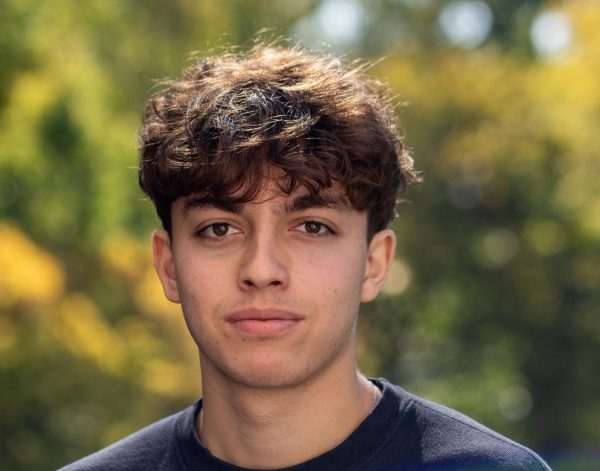Following the departure of former Upper School Principal Sarah Polland, WIS has appointed a new Upper School Principal, Zarmina Hotaki. The 2023-24 school year marks her first year on the job, and Hotaki enters this position with an abundance of experience and excitement.
Originally of Afghan descent, Hotaki’s family left their homeland after the Russian invasion in the 1980s. Her father moved the family to Germany before the family moved to Northern Virginia, where Hotaki still lives.
Hotaki is grateful for the diversity of the D.C. area that allowed her family to easily settle in.
“Being from the [D.C.] area, there is a beauty to diversity and finding groups that you can be comfortable with,” she said.
Hotaki’s parents valued quality education, therefore, ensured their children were focused on their studies. Looking back, Hotaki is extremely grateful for her parents’ influence.
“I grew up in a very loving home with parents that supported me, very much focused on education,” she said. “Education was something that was really important. A priority. Non-negotiable.”
Almost all of Hotaki’s extended family were able to receive college degrees, a great accomplishment for first-generation immigrants, according to Hotaki. But it was not easy at first.
Due to her international background, Hotaki spoke three different languages, German, Persian (specifically Dari) and Arabic, before learning English. In light of this, Hotaki found that in American schools not knowing the English language can lead to a challenging educational experience.
It can be difficult for immigrant youth to ingrain themselves into society and thrive in school because of cultural barriers, according to Hotaki.
Being an international school, WIS’s values include striving toward creating a welcoming environment, regardless of a student’s background. Unfortunately, many schools in the area fail in doing so, according to Hotaki, and it was this deficiency that inspired her to create change in the field.
“One of the reasons why I went into education was because I wasn’t always happy with my personal experience,” Hotaki said.
Initially involved in the medical field, she discovered her love for education while working on mental health initiatives for kids.
“I actually got into education through [working at a psychiatric hospital], and realized my passion for improving students’ educational experiences,” she said.
Using her previous knowledge with mental health, Hotaki was able to develop innovative strategies that make her approach to improving education unique. An example of this is to form a setting in which students believe they are being assessed on a personal level.
“It’s important to provide an environment where students feel they are looked at individually, having the teacher know them personally, understanding their specific needs,” Hotaki said.
Hotaki’s own experience as a student further underscores the significance of individualizing student interactions for her. She recalled a moment in elementary school that had a lasting impact on her life.
“I remember being in fourth grade and having been pulled out of class to work with a teacher on specific reading strategies, and I thought to myself, ‘am I struggling?’” she said. “Afterwards, I was determined to excel over and over again.”
This profound memory of internalizing her disadvantage in the classroom due to a language divide ignited her desire to achieve success in the remainder of her educational career, even going on to teach an Advanced Placement (AP) English course.
“I taught AP English because I wanted to fight that stereotype of struggling with language,” Hotaki said.
Hotaki was attracted to WIS because of the international community, the value of international-mindedness and the IB program. Having worked in public, charter and other international schools around the world, Hotaki finds WIS to be among the best category of schools.
“International IB schools are the closest to the model of what an ideal, wonderful school should look like.”
Although Hotaki believes that WIS is doing a great job overall, she thinks the school can look into increasing local outreach and share its pioneering language curriculum, as supporting our local community is crucial.
“I think localization is very important for WIS, to set our footprint in the D.C. area to demonstrate our bilingual learning approach,” she said.
Hotaki understands that taking on a leadership role is not easy and can have a detrimental impact on the emotional well-being of an individual. She shared valuable insight for those intending to undertake a similar position.
“I don’t mean to sound discouraging, but leadership can be a very lonely place,” she said. “The key is finding a collaborative, small group of educators that you trust and can cooperate with.”
With just a few months on the job, Hotaki has been pleasantly surprised by the positivity she has received from the WIS community.
“I really do appreciate and am flabbergasted by the kindness that both the faculty and students have shown me,” she said. “It’s absolutely beautiful.”
Along with other new faculty members, Hotaki is very eager to begin sharing her ideas to enhance the student experience at WIS.
“I want to be a part of a changing movement, providing support and creating an education system where access is for all students,” she said.
By Derin Kirtman


































































